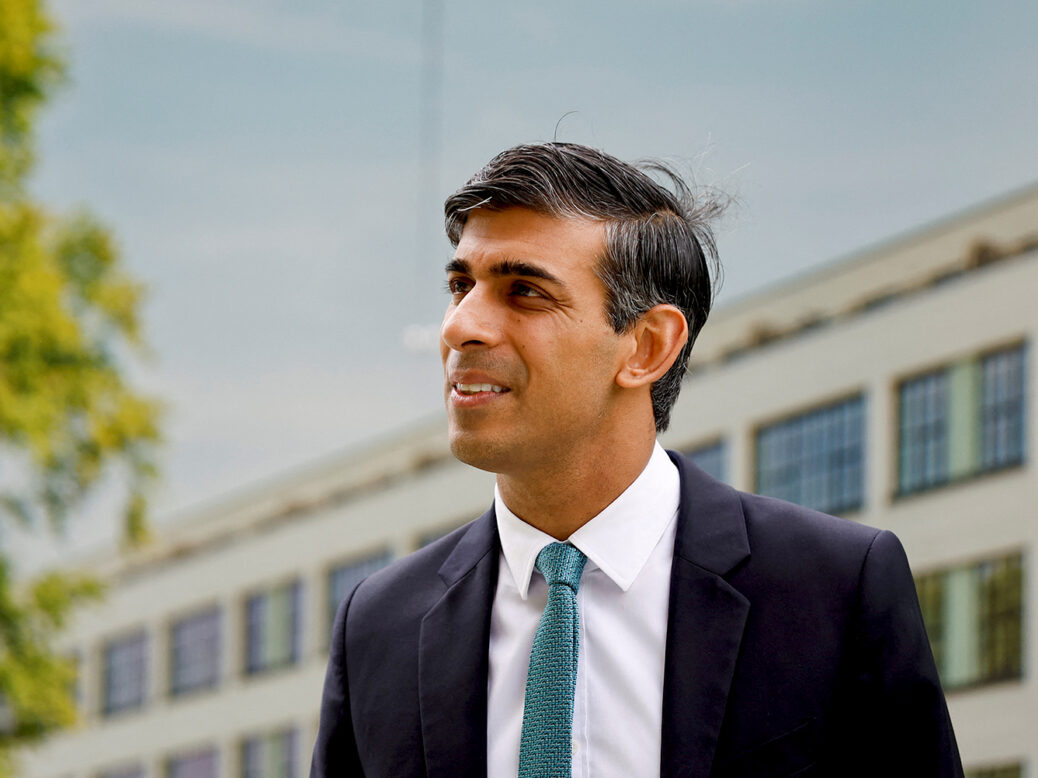
Rishi Sunak’s shot at re-election is emerging. It is to say that everything his predecessors pursued is dumb or unachievable. The suggestion over the past week that HS2 should be scrapped is the best example yet that the Prime Minister has no fidelity to the spirit of the 2019 campaign that helped to give the Conservatives their best election victory since 1987. Levelling up for Sunak is a misguided policy. It does not align with his desire to control public spending and trim the size of the state.
You could argue that was always the case for Boris Johnson as well. The several levelling-up funds he announced were little more than small pots of money designed to help often Conservative-voting areas with a lick of paint for dilapidated high streets. Nonetheless, Johnson tapped into a desire to see the economy rebalanced away from the black hole of the south-east towards the midlands and the north. He sought to counter the damaging effects of austerity – illiterately, cynically and haphazardly – in a way that spoke to the concerns of voters outside the south-east that their areas had not been given a fair deal, let alone prioritised. This sentiment is now being toyed with.
For Labour, the contrast between a mayor in Manchester who has taken buses back into public control and a Prime Minister content to deprive the north of promised infrastructure is something it could utilise. What seems more likely, however, is that Rachel Reeves will pocket the money saved from scrapping HS2 to steady short-term debt.
Sunak has chosen a path designed to tap into anxieties about the cost of living by conflating the road to net zero with higher bills for households. This could prove fruitful: cast your eyes around Europe and America and you’ll see a healthy scepticism of climate politics brewing. No 10 is channelling a Faragist politics, which is a concoction one should be wary of betting against. One positive outcome is that a deliberative approach to the costs of net zero might now take place. Brexit and the Tory civil war have overloaded the country’s bandwidth since the net-zero target was passed into law. That may now change. Labour will be forced to defend, or retreat, on its promises to combat global warming. A true test of the marketplace of ideas.
But there are still risks. Sunak’s attempt to set out a vision for the future is confined to criticising the past. Scaling back his predecessors’ ambitions – those of his own party – is not setting out a positive vision for how the country should be run. It lacks optimism. It is defensive. I suspect announcements on education, particularly the promise to expand maths teaching, may follow. I also think Sunak will belatedly try to distance himself from the September 2022 mini-Budget debacle and claim to be a new government. But such a claim lacks legitimacy in voters’ eyes. Roiling crises are blamed on the party in power, even if the person in charge means well and can master a brief. A new report from Onward suggests more Tory voters blame Liz Truss than net zero for higher taxes. The Prime Minister’s ailing favourability ratings speak to the elision of man and party.
But Sunak will not go gentle into that good night. His life chronicles a fear of failure. Losing is foreign to him. Expect him to do everything in his power to keep that record clean.
[See also: Labour shouldn’t hope that the Tories lurch further right]



